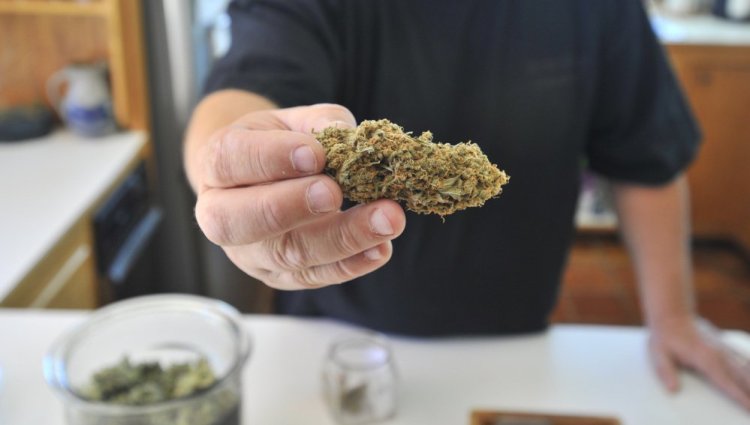AUGUSTA — Medical marijuana caregivers say Maine’s new program rules may not be as bad – or require as much work to follow – as they had initially feared.
Some caregivers say the new rules may even help the industry by legitimizing certain practices that were once considered legally murky, like patient cycling, a method by which they can increase the number of patients they treat.
“As scary as it is having new rules imposed on us, things really aren’t changing that much,” said Catherine Lewis of Medical Marijuana Caregivers of Maine. “There were actually some positive changes.”
Lewis led a two-hour workshop on the rules for about 125 caregivers in Augusta on Saturday. The rules came out two weeks ago but won’t go into effect until February.
The discussion came as Maine still struggles to implement an initiative approved by voters a year ago to legalize the recreational use of marijuana. The Maine House voted Nov. 6 to sustain Gov. Paul LePage’s veto of a bill that would create the legal framework for retail sales of recreational marijuana. The bill was the result of more than nine months of work by a special committee tasked with implementing the ballot box law.
At first glance, the new medical marijuana rules appear to crack down on Maine caregivers, hitting them with tougher inspections, more paperwork and higher penalties for noncompliance.
But many of the new rules reflect changes enacted by laws passed since the last rule update in 2013, Lewis said. Caregivers are already following those laws.
One of the additional paperwork requirements included in the new rules – an annual tally of the number of patients each caregiver sees – was good news to Lewis.
While it does mean a little extra work, Lewis saw the new tally as state acknowledgment of patient cycling, or what caregivers call short-term designations.
State laws limit caregivers to treating five patients at a time. While some treat fewer, others have found a way to boost their patient base from five to hundreds.
These caregivers realized they could cycle patients through that fifth slot, treating each one just long enough to make a sale before moving on to the next.
“They are acknowledging we are small businesses, that we can see more than one patient at a time, that we can use short-term designations,” Lewis told the crowd.
The new rules do impose some additional hardships.
Registered caregivers will have to submit to surprise state inspections, even if their medical grow is in their home. If they refuse, they could lose their license.
Under current rules, the state inspects caregivers if it gets a complaint, but caregivers can refuse immediate entry without penalty and reschedule it.
The state has only two marijuana program inspectors now, Lewis said, so it is unlikely to target law-abiding caregivers for harassment.
Caregivers will have to use “trip tickets” to document any time they carry marijuana between their grow site, place of sale and a patient, much like dispensaries do.
But Lewis said this protects caregivers from getting into legal trouble if they are pulled over by a police officer when delivering bags of medicine to patients.
Lewis wants to meet with the new state medical marijuana director to clarify certain rules, like one that details medical marijuana patient certification.
The rule says a patient must have a relevant physical exam before a doctor can certify. Some caregivers say this threatens Maine’s tradition of telemedicine.
But in a response to a caregiver complaint at a summer rules hearing, the state said that nothing in these new rules would threaten telemedicine.
Dispensaries have long complained that caregivers aren’t as tightly regulated as they are, giving caregivers an unfair economic advantage.
While dispensary growth has slowed, with sales increasing 5.3 percent in 2016 compared to 46 percent in 2015, the caregiver industry appears to be booming.
Maine doesn’t report total caregiver sales, but a 44 percent increase in the number of caregivers, reaching 3,200 in 2016, hints at the industry’s growth.
Send questions/comments to the editors.




Comments are no longer available on this story